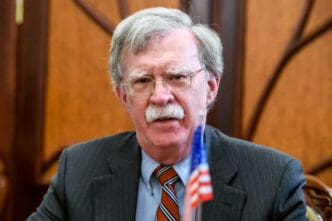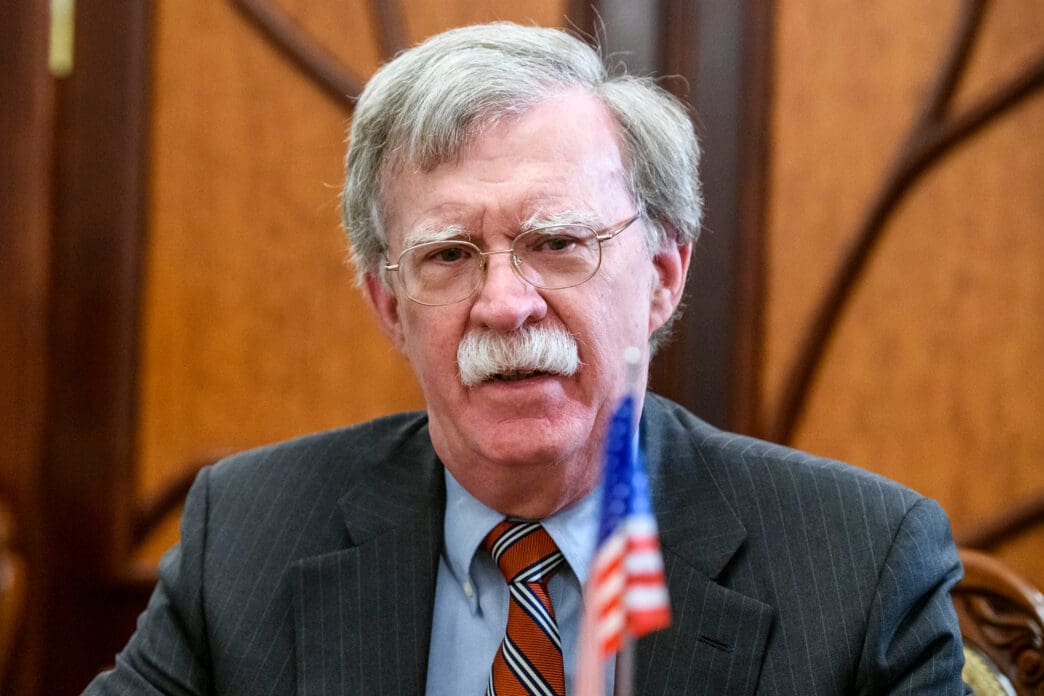Executive Summary
The Story So Far
Why This Matters
Who Thinks What?
John Bolton, who served as President Trump’s national security adviser, has been indicted on 18 counts of mishandling classified information following a quiet, multi-year investigation that originated during the Biden administration. The indictment, unsealed on October 17, 2025, in Maryland, alleges that Bolton shared over a thousand pages of sensitive information from his personal email account with two unauthorized individuals, identified by CNN as his wife and daughter. Bolton has pleaded not guilty to all charges, asserting he is a victim of President Trump’s efforts to weaponize the Justice Department.
Investigation Details Emerge
The investigation into Bolton began approximately three years ago, with the Maryland US Attorney’s office quietly building a case. According to sources familiar with the matter, FBI Director Kash Patel, upon being briefed on the investigation in February, expressed strong frustration, reportedly asking why Bolton had not yet been jailed.
This indictment marks Bolton as the third prominent critic of President Trump to face charges in the past month. While President Trump had publicly urged Attorney General Pam Bondi to prosecute other perceived political enemies, including James Comey and New York Attorney General Letitia James, he did not specifically name Bolton in his recent social media post.
The cases against Comey and James were presented to a grand jury by Lindsey Halligan, an interim US attorney handpicked by President Trump, who had no prior prosecutorial experience. In contrast, the 26-page indictment against Bolton was signed by six career prosecutors, including US Attorney for Maryland Kelly Hayes and the Justice Department’s current head of counterintelligence investigations, Scott Lara, indicating broader support within the Justice Department.
Origin of the Probe and Trump’s Reactions
The initial criminal investigation into Bolton, which focused on whether his 2020 memoir illegally revealed national security information, was closed by the Justice Department in June 2021. However, a new probe commenced around the same time after a Bolton representative notified the FBI on July 6, 2021, of an Iranian hack into his AOL email account.
Investigators, assessing potential damage from the hack, began to question Bolton’s practice of sending diary entries from his personal email, which subsequently led to the current charges. The Iranian hacking campaign reportedly included threats against Bolton, aiming to expose him and cause problems similar to those faced by Hillary Clinton in 2016.
President Trump has long been a vocal critic of Bolton, especially after the release of his 2020 memoir, which contained highly critical allegations about the Trump White White House, including claims that Trump sought Chinese assistance for the 2020 election. Trump publicly called Bolton “a lowlife who should be in jail” in 2020 over the book and labeled his actions as “treasonous.”
Despite his previous outspokenness, President Trump had commented less frequently on the Bolton probe this year. However, sources indicate that since the search of Bolton’s home and office in August, President Trump had inquired about the case’s status and had been assured of its progress and strength.
Investigation Progress and Political Pressure
The FBI and national security lawyers formally opened an investigation into the email hack in 2022. The process involved obtaining warrants for data from service providers like Yahoo and Google, with the collected information meticulously reviewed by both the intelligence community and a Justice Department filter team to separate classified material and attorney-client records.
In August, FBI agents executed search warrants on Bolton’s home and office, seizing electronics and numerous documents labeled as “secret,” “confidential,” and “classified,” some pertaining to weapons of mass destruction. These searches were crucial, as investigators found printed copies of emails Bolton had sent to his family, some explicitly noted for “the Archives.”
Following the August searches, Justice Department leaders, including an attorney from the deputy attorney general’s office, reportedly pressed for the US Attorney’s office to charge Bolton more quickly. However, career prosecutors in Maryland resisted, arguing for more time to strengthen the case, including a thorough review of the newly obtained records.
The political pressure on the Maryland office eased after the indictment of Comey. Subsequently, career prosecutors on the Bolton case withdrew their reservations on timing, leading to the finalization of the indictment last weekend. Lead prosecutor Thomas Sullivan presented the case to a federal grand jury on Thursday, resulting in the 18 counts against Bolton.
Next Steps
John Bolton’s plea of not guilty sets the stage for a legal battle. He stated that the charges represent an “intensive effort to intimidate his opponents” and an abuse of power by President Trump, vowing to defend his conduct and expose such abuses. The ongoing proceedings will shed further light on the allegations and the future of this high-profile case.








